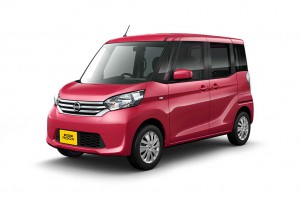While the market for automobiles in China has received an enormous amount of attention, the market for new vehicles in another Asian giant, Japan, also faces stress.
The decision by the government of Japanese Prime Minister Shinzo Abe to delay a two percentage point increase in the country’s sales tax by two and a half years from April 2017 to 2019 is expected to have an adverse impact on Japan’s carmakers, according to new estimates by BMI Research, a division of Fitch Investor Services.
Abe delayed the sales tax increase over concerns it could damage domestic demand and derail economic growth, according to BMI. The rise in the sales tax from 8% to 10% was initially meant to take place in October 2015, but was then moved to April 2017 and has now been pushed back even further to October 2019.
The delay in the sales tax increase will remove the surge in demand for new passenger vehicle purchases by households and businesses that we had previously anticipated ahead of the hike in April 2017, BMI also noted.
(Hacked Outlander renews concerns about cyber security issues for autos. For more, Click Here.)
“As a result, we have revised down our passenger vehicle sales growth forecast to a contraction of 5.5% in 2016 – down from a previously forecasted expansion of 2.7%. Furthermore, we now only expect a recovery in the passenger vehicle market in 2018 as consumers and businesses make their new car purchases ahead of the newly proposed sales tax increase date,” BMI added.
Car sales in Japan reached more than 4 million units in 2014 but dropped last year and will now continue to drop this year and next, according to the BMI forecast. Even when sales recover in 2018, they will remain below the 2014 peak in the next decade.
Economic growth in Japan remains sluggish despite low unemployment, a negative interest rate environment and other government stimulus measures.
(Click Here for details about Land Rover’s attempt to sue Chinese copycatters.)
BMI’s Country Risk team estimates the delay in the sales tax hike will fail to support economic growth, which is forecast to grow 0.6% in 2016 and 0.7% in 2017.
“This will not bode well for a struggling autos market as consumer confidence in the economy remains weak,” BMI noted. “Consumer sentiment rose to 40.8 in May 2016, up from 40.2 the previous month, but below the 50-point threshold, indicating respondents are pessimistic about the country’s economic condition, which will translate into less willingness to spend on big-ticket items.”
Toyota has the largest share of the Japanese home market but the decline in sales to Japanese customers will require not only Toyota but Nissan, which is the process of consolidating with Mitsubishi, Honda and Mazda to look for growth opportunities out Japan.
(To see more about Walmart teaming with Uber, Lyft on delivery services, Click Here.)
One country that has received attention from Japanese carmakers of late is Pakistan where the government is searching for auto companies will to build factories in country that has long been considered something of a risk by global companies.

